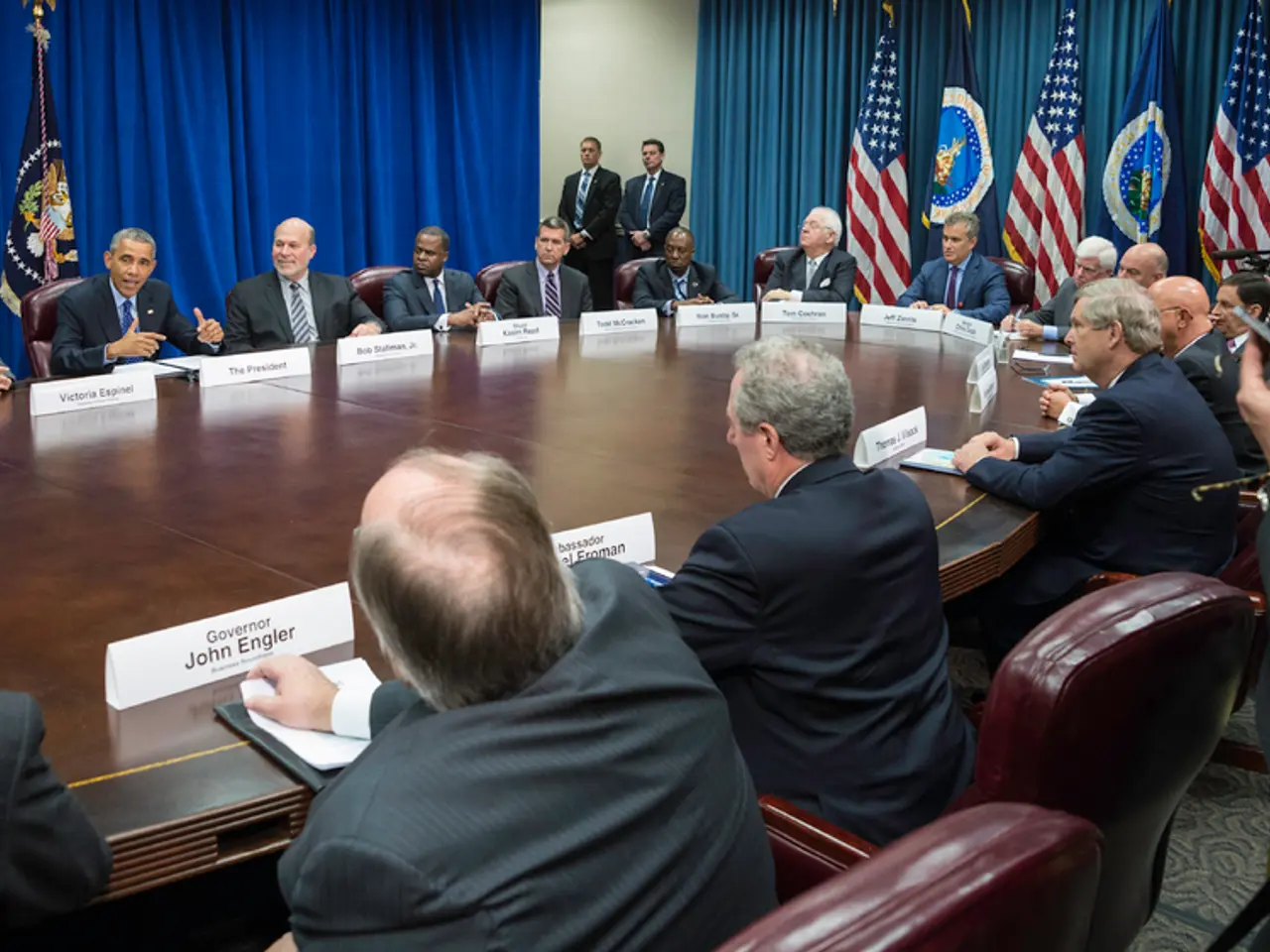Defending Herself, the Richter Candidate States: Not Ultra-Left - Contender for judicial position justifies her actions
In a heated political standoff, the nomination of Frauke Brosius-Gersdorf for the Federal Constitutional Court remains unresolved, following a series of controversial statements and labels from Union (CDU/CSU) politicians. The election, which also includes the selection of another judge and a judge for Karlsruhe, was removed from the Bundestag agenda due to the inability of the Union faction to guarantee support for Brosius-Gersdorf.
Brosius-Gersdorf, a law professor, has been labeled "ultra-left" and "left-wing radical" by some Union politicians primarily due to her progressive views on several sensitive issues. Her stance on abortion, banning the far-right populist party Alternative für Deutschland (AfD), compulsory vaccination, women's quotas, and religious expression have sparked strong opposition from conservative circles and religious leaders.
Brosius-Gersdorf advocates that human rights begin only at birth, implying that unborn fetuses do not have constitutional protection. She supports legalizing abortion but does not advocate for unlimited rights up to birth, as some critics claim. Her public support for banning the AfD, given the party's status as Germany's second-largest, is also politically charged. During the COVID-19 pandemic, Brosius-Gersdorf was a main proponent of vaccine mandates, a stance that has been controversial among conservative and right-wing politicians.
Brosius-Gersdorf has also advocated for implementing a compulsory women’s quota and has supported the idea of public servants being allowed to wear a headscarf while on duty if they choose. These positions have provoked significant backlash from conservative politicians within the CDU/CSU and the right-wing populists in the AfD, leading to claims that she is an "ultra-left" extremist unsuitable for the Federal Constitutional Court nomination.
The controversy has led to a postponed confirmation vote and intense political debate. Several Union MPs publicly described Brosius-Gersdorf as unsuitable and unelectable, while others called her an "ultra-left jurist." However, the SPD continues to support her, and Brosius-Gersdorf herself strongly rejects being labeled as an "ultra-left" or "left-wing radical."
The Left Party leader, Ines Schwerdtner, has rejected an extraordinary session at this point, suggesting the Union should use the summer holidays to find majorities. The Union's faction leader, Jens Spahn, admitted that they underestimated the concerns about one of the candidates and that the emergency brake came too late. The Union faction's board will discuss the next steps in the afternoon.
The German Press Agency reports that a new judge election in the Bundestag could take place as early as September, but the Greens are calling for an extraordinary session of the Bundestag as early as this week. The responsibility for reaching an agreement is seen as lying with the CDU, according to Schwerdtner. The SPD has reiterated that the allegations against Brosius-Gersdorf were false, misrepresented, or inaccurate.
Brosius-Gersdorf has emphasized that if her scientific positions are politically categorized, a picture of the democratic center emerges. She also criticizes parts of the media for their inaccurate, incomplete, unspecific, and opaque reporting, which she believes was driven by the goal of preventing her election. Criticism should also be directed at "individual state functionaries," she added.
As the political standoff continues, the fate of Brosius-Gersdorf's nomination for the Federal Constitutional Court remains uncertain. The debate highlights the polarizing nature of political discourse in Germany, with the nominee's progressive views sparking strong opposition from conservative circles. The situation underscores the delicate balance required to maintain a diverse and representative judiciary in a democratic society.
Financial aid in the form of political support for Brosius-Gersdorf's nomination remains contested within the Union faction, as their inability to guarantee such aid led to the removal of the election from the Bundestag agenda. The ongoing debate on policy-and-legislation regarding Brosius-Gersdorf's nomination is a reflection of the politics surrounding her progressive stances, which have sparked strong opposition from conservative circles.








